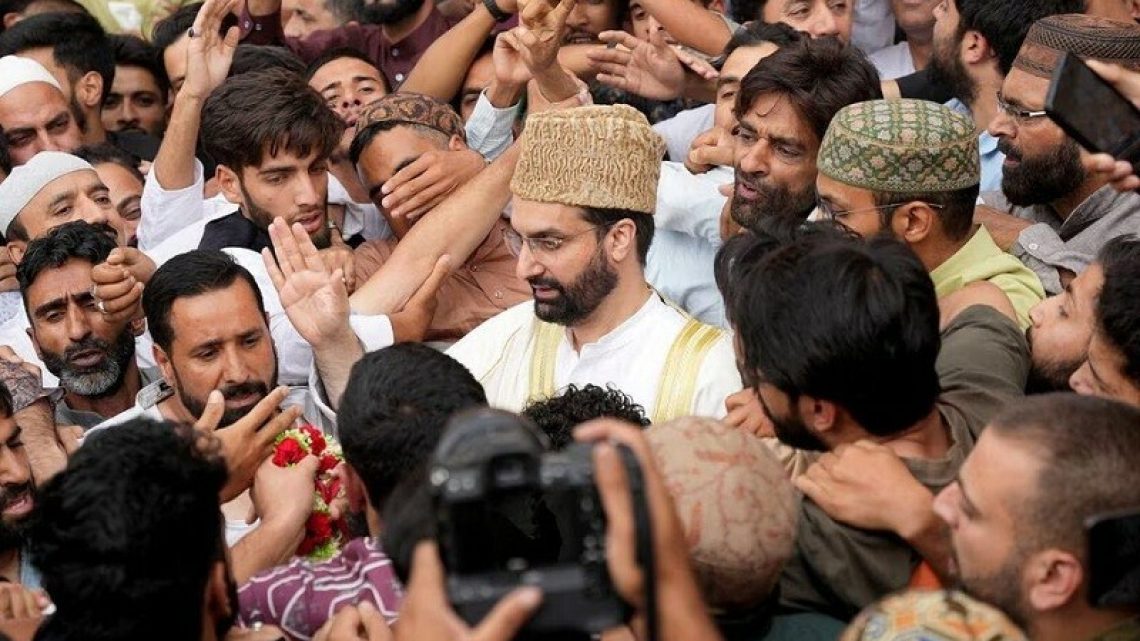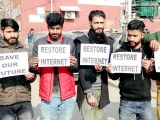
The Farcical Elections in IIOJK Bear No Fruit: Mirwaiz Umar Farooq
September 30, 2024Mirwaiz Umar Farooq, a prominent leader of the All Parties Hurriyat Conference, asserts that local elections in IIOJK will not resolve the long-standing Kashmir issue. This conflict is central to the ongoing dispute between India and Pakistan.
Farooq, who has been under house detention for much of the past five years, argues that the elections are being held amid a climate where dissent against Indian rule is suppressed. Since the Modi-led Indian government, revoked IIOJK’s special status in 2019, political voices have been largely silenced.
In a recent interview, Farooq emphasized that the elections, branded by the Modi-led BJP government as a “festival of democracy,” cannot replace meaningful discussions aimed at addressing the Kashmir dispute. He believes these elections in IIOJK merely serve to maintain the status quo rather than offering a genuine path to resolution.
Farooq, who is also a respected Muslim cleric and the custodian of the historic Grand Mosque in Srinagar, stated that these elections do not tackle the larger issues at play. Instead, they perpetuate a narrative that ignores the fundamental grievances of the Kashmiri people.
While authorities claim these elections will foster democracy in a region scarred by decades of turmoil, many locals perceive the voting as an opportunity to express dissent. The elections allow residents not only to choose representatives but also to voice their opposition to the 2019 changes, which they fear threaten the IIOJK’s demographic integrity.
The sentiment among the population reflects a broader frustration with the Indian government’s policies in IIOJK. Many view the electoral process as a facade, designed to legitimize continued Indian control while sidelining genuine aspirations for self-determination.
As the situation unfolds, the elections could serve as a barometer for public sentiment. If voter turnout is low or if the results reflect significant opposition to the ruling authorities, it may signal widespread discontent among Kashmiris.
The current political climate complicates the prospects for peace. Local elections, rather than fostering dialogue, might entrench divisions further. The history of Kashmir’s struggle for autonomy and recognition cannot be resolved through superficial electoral exercises.
To conclude, while elections may appear democratic, they cannot substitute for substantive political engagement regarding IIOJK’s future. Farooq’s comments underscore the need for a deeper, more inclusive dialogue that considers the aspirations and rights of the Kashmiri people. Addressing these issues requires acknowledging the historical context and ongoing tensions, not just facilitating a flawed electoral process.

